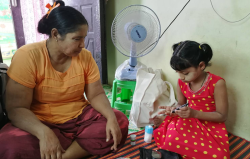Date
21 May 2025
Not just about weight-loss drugs, companies need to do more for children and young people with type 1 diabetes
Direct links
The article draws attention to the growing concern over limited access to insulin for children and young people (CYP) with type 1 diabetes (T1D), despite recent global interest in blockbuster drugs such as Ozempic and Mounjaro. It references the Foundation’s latest report, which was discussed during a panel event co-hosted by the Foundation at the World Health Assembly in Geneva. The report finds that, while companies including Eli Lilly, Novo Nordisk, Sanofi, and Biocon are supporting 11 access initiatives for CYP with T1D, these efforts remain insufficient in both scale and sustainability.
The article echoes the report’s finding that fewer than 10% of the estimated 825,000 children in need across 71 low- and middle-income countries (LMICs) were reached by these initiatives in 2023. Most initiatives are still heavily dependent on donations, raising concerns about their long-term viability.
Furthermore, the article highlights that, although some companies have begun supplying more advanced products—such as insulin analogues and insulin pens—these improvements have only reached a small number of children. It quotes Jayasree K. Iyer, CEO of the Foundation, who warns that despite insulin being a product developed over a century ago, many children still cannot access it reliably, underlining stark inequities in global diabetes care. Both the article and the ATMF report emphasise the need for pharma companies to move beyond one-off donations and commit to sustainable, locally integrated solutions.

